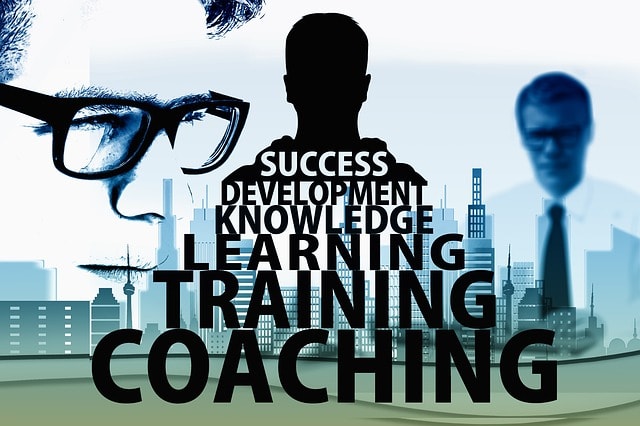A vital step in working out who you are
If you are serious about changing careers, then you need to build up a detailed understanding of your strengths and talents. If you are clear on this, then you can assess career ideas with your skills and strengths in mind.
Work which allows you to do what you are good at will be more fulfilling for you and your employer is likely to be happier with the results you produce too!
So what skills have you got?
There are a number of different ways you can carry out a personal skills audit. Here are a couple for you to try.
Job analysis
Many people go blank when you ask them about their skills. So sometimes it is easier to work backwards from what you have done to work out what you are good at. This is where a job analysis can help.
Here’s how to do it.
Step One
- Take a separate sheet of paper for each of the jobs you have done and write the job title at the top. Divide each sheet into two columns.
- Use the first column to brainstorm all tasks each role involved. Include as much detail as you can. Don’t just list the official duties but include everything you turned your hand to in that role.
- Avoid broad terms like ‘produced a monthly newsletter’. Break it down into the steps involved – wrote articles, canvassed team for ideas, selected pictures/photos, liaised with print room, etc. etc.. Don’t worry about whether they are important or significant, just try to capture as much of what you did as possible.
- Watch out for any negative self-talk here (‘well, it was only…’ or ‘I just did a little bit of…’). The purpose of brainstorming is to squeeze out as much information as possible. You can evaluate the activities later.
Step Two
- The second step of your personal skills audit involves looking at these tasks to explore what skills you have developed. Make a list of the skills you needed to carry out all these tasks. Were you showing an
ability to deal with people? Were you using and analysing information and data? Were you coming up with ideas and being creative? Were you using practical abilities such as repairing things? - If you are not sure what skills you were using, take a look at the checklist of personal skills I have created. You will find that it also helps if you brainstorm with a friend or your Career Change Buddy – two heads are always better than one.
Step Three
- Don’t stop with work. Do additional sheets for other unpaid roles you play in your life – eg parent, sports club secretary, gardener, the list could be quite long!
- A personal skills audit of what you have done outside of work can be very revealing and help you to value the skills you have gained from all areas of your life. You may find that there are skills you have developed here that you just don’t give yourself credit for.
- For example, you may be the coach for a local football team – using skills like leadership, motivation, encouragement, training etc.. If you really enjoy this, but do not hold a management or team leadership role at work, this might suggest that this could be a new direction for you in your career. And you already have many of the skills you need!
Personal skills audit
An alternative strategy is just to sit yourself down and make a list of what you know you are good at. This will come easier to some than to others.
Step One
- Just start writing. You already know at least some of the things you are good at.
You’ll find there are some skills you feel very confident with and others where you think you can do them ‘a bit’.
Don’t be shy – this is not an exercise where you can be bashful. Be proud to list what you know you do well.
Step Two
- You will come up with some skills without any prompting, but there will be many more. As I mentioned above, if you are the kind of person that prefers working with a checklist, take a look at the list of personal skills I have created as a prompt.
- Another source of ideas is job ads. Start scanning newspapers – for any kind of job – and see what kinds of skills come up regularly. Recruiters understand the importance of skills – this is why they list the ones they need in their job ads.
Step Three
- I already mentioned brainstorming with your Career Change Buddy in the previous exercise. Don’t stop there. Why not directly ask some of your friends and colleagues what they think are your main strengths and skills as they see them. Give them a bit of time to think about it and ask them to highlight what they think are your top 3 or 4 skills. It can be a real confidence booster to hear others reflect back what they value in you as a friend or colleague.
Step Four
- When you have done your personal skills audit, take a look at what I suggest at the beginning of the personal skills checklist. A list is not enough. It is important that you rate your skills by level of ability and level of enjoyment
Do you get to use your skills now?
Whichever exercise you do, when you have listed your skills, stop and check how far you are able to use them in your current job or role. This is where the importance of skills can become apparent.
If you don’t get to use your favourite skills much, maybe that is what is prompting you to look for a change. Career change success depends on you making a reasonable match between your skills and the demands of the job you switch to.
What next?
Review whether your ‘top’ skills are the ones you want to use the most. Make a note of any skills you really enjoy using but know you need to develop further. Taking a training course to improve your skills could be a good stepping stone to move you forwards with your career change plans.
Hopefully, after you have done the personal skills audit you will begin to see how an awareness of your skills affects the way you approach your career change.
Why not continue exploring what makes you tick to help you with your Career Change Project? You can look at…


Great stuff, really helped me. Thank you.